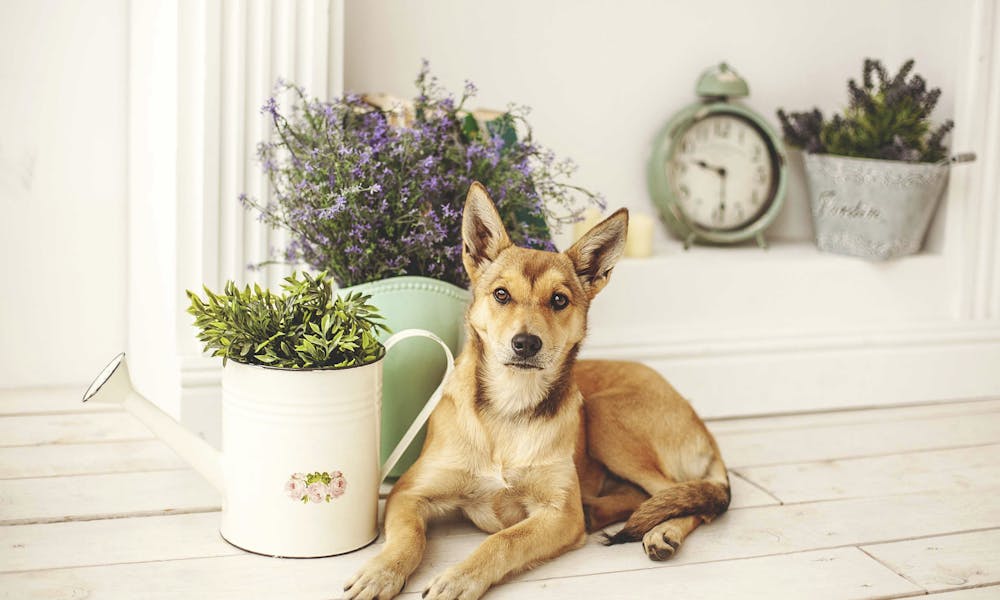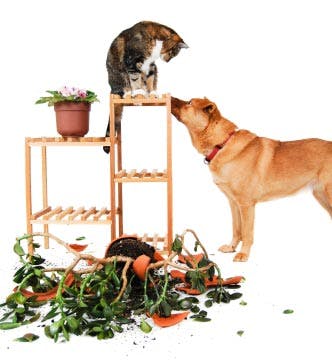MENU
Flowers and plants are NOT our pet’s best friends!


Spring is here and we start spending more time outside. And it’s not just us- also our cats and dogs enjoy the great outdoors.
Spring is a lovely time and if you want to make the best of it, you may want to learn which plants and flowers are safe and which to avoid when taking your dog for a walk, or letting your cat out into the wild world of your garden.
I figure that this alone is a great reason to dedicate this post to our lovely furry friends ;D
Though they’re strict carnivores, cats and dogs love plants, and they will eat them even though it can make them ill. The consequences for our “hobby vegetarian” pet can range from simple vomiting to liver failures, seizures and even death. And while most animal species learn to stay away from things that make them sick, cats and dogs, for some strange reason, will eat plants and flowers over and over again! So let’s ignore the fact that our furry companions can be a little stubborn sometimes and find out how we can make this spring to a positive experience for us and for our pet.
A wide variety of plants and flowers are poisonous to cats and dogs. Some of the more dangerous are Castor Bean, Foxglove, Lily Of The Valley, Japanese Yew, Oleander, Azalea, Rhododendron and Hydrangea.
Some of our favorite flowers like Amaryllis, Daffodils, Iris, Hyacinth and Honeysuckle also are poisonous and can produce oral irritation, vomiting, diarrhea, lethargy, trembling, convulsions, seizures, low blood pressure and hind end weakness.
To protect our pets, we should try to keep known poisonous plants out of their reach. That doesn’t mean we should keep our precious plants and flowers out of our homes or gardens, just simply keep an eye on it and always be on the lookout for plants and flowers that have been chewed.
If your pet couldn’t stop the craving and actually had a bite, it’s important for you and your veterinarian to know specifically what plant he or she has consumed. Since both common names and scientific names are used, make sure the identity is correct. If you’re unsure, it might be good to bring the plant to your veterinarian for identification.
Happy Spring Time!

